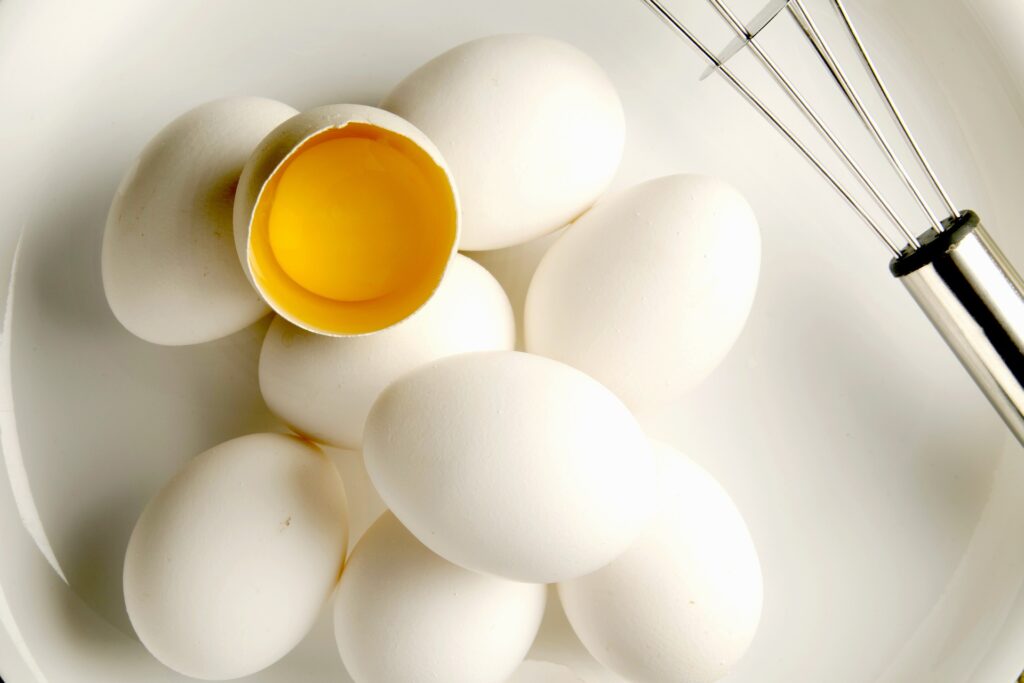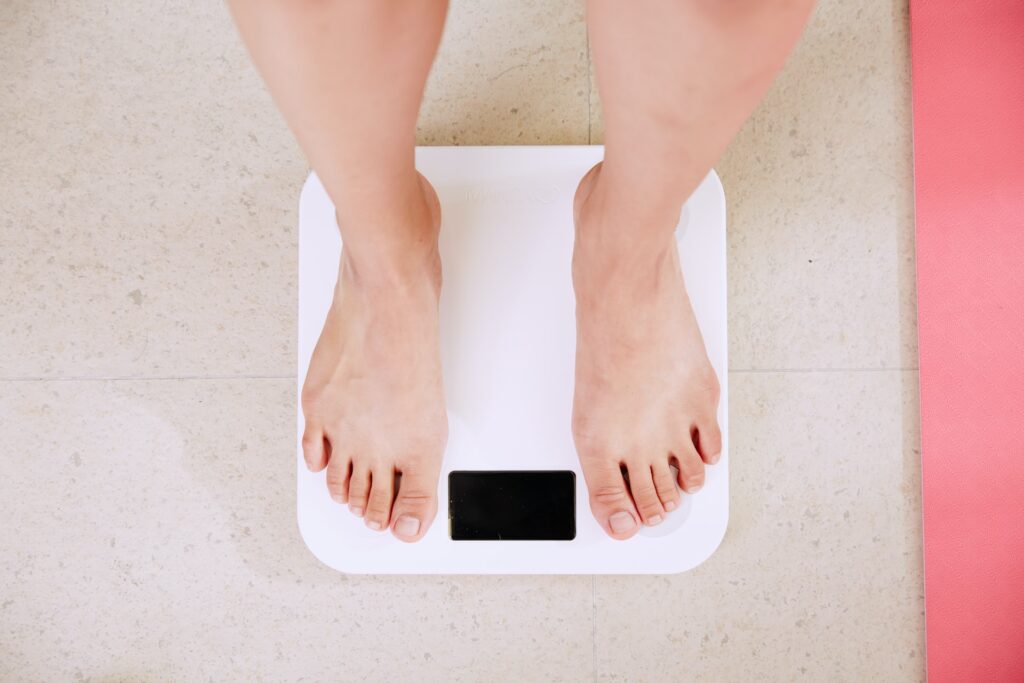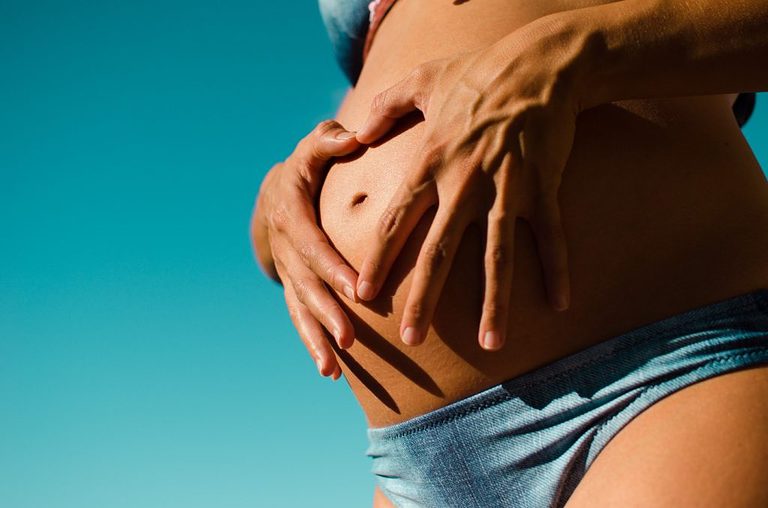Most people assume that after a successful conception and pregnancy, there will be no trouble conceiving naturally again in the future. However, many couples, 30% in fact, find they experience what is known as secondary infertility. So, what is secondary infertility, what are its causes and how can we increase our chances of conceiving with our diet and lifestyle. Let’s dive right in!
What is secondary infertility?
Not to be confused with primary infertility (the inability to fall pregnant naturally after 1 year of trying), secondary infertility is the inability to conceive naturally after already successfully becoming pregnant at least once before.
The cause of secondary infertility can occur at any point along the conception pathway including ovulation, fertilisation and implantation.

Why does it happen?
There are several reasons as to why couples may experience secondary infertility.
The most common are:
- Ovulation and obstruction disorders: including polycystic ovary syndrome (PCOS), primary ovarian insufficiency (POI), endometriosis and fallopian tube damage or blockages. These can all interfere with either normal ovulation or fertilisation patterns, making it harder to conceive naturally.
- Age: As we age, the number of eggs as well as the quality of those eggs naturally declines. In fact, research has shown that by around age 35, birth rates decline and the number of pregnancy complications increases (Liu & Case, 2011). If you’ve already had one child and it has been a few years and you’re now a little older this could be another reason why you are having trouble conceiving and having a healthy baby.
- Previous pregnancy complications: Complications during previous pregnancies such as a still birth, can result in infections within the reproductive organs which can impact on future fertility (Dhont et al. 2011). Previously delivering a baby via C-section can also be another factor to consider, in some circumstances when combined with changes in menstrual cycle and/or infertility, an investigation into Asherman’s syndrome should be considered to ensure that this isn’t hindering your chances of conceiving again.

- Poor egg and sperm quality: Our egg and sperm quality can be impacted by several internal and external factors. Our diet, exercise patterns, sleep patterns, hormones, age and genetics can all play a part in the health of our reproductive cells – let’s just say these are all very susceptible to change!
Read more about optimising egg quality and improving sperm health in my other blog posts.
So, what can I do?!
Secondary infertility can be challenging for many couples, however, there are lifestyle changes that can be made to help increase our chances of conceiving naturally again!
Change your diet
Our diet can play a big role in any fertility journey, including secondary infertility, and eating the right foods and nutrients can positively impact on our chances of conceiving. When it comes to the optimal eating pattern for fertility, it’s hard to look past the Mediterranean Diet style of eating (think vegetables, fruits, wholegrains, extra virgin olive oil, oily fish, legumes and low-fat dairy).

Research has found both men and women had higher quality semen and eggs respectively, when they adhered to a more Mediterranean style diet (Salas-Huetos et al, 2017).
Read more about the Mediterranean Diet and fertility here.
The key nutrients within the Mediterranean diet that are beneficial for secondary infertility include:
1. Omega-3 Fatty Acids
Important for decreasing inflammation around our reproductive organs, forming the building blocks of sperm cells and enhancing female fertility (Safarinejad et al. 2009 & Gaskins & Chavarro, 2017).

Omega-3’s are found in oily fish such as salmon, trout, anchovies, sardines and mackerel as well as vegetarian sources such as chia seeds, flaxseeds and walnuts (however, these are more poorly absorbed compared to animal sources).
Read more about Omega-3 fatty acids and fertility here.
2. Antioxidants
Specific antioxidants such as Coenzyme Q10, Vitamin C and Vitamin E help to decrease inflammation, free radicals and DNA damage in the reproductive organs.
Antioxidants are found in all plant foods including brightly coloured fruits and vegetables, wholegrains, nuts, seeds and legumes.
3. Zinc
Zinc is an essential mineral integral for antioxidant pathways to function as well as the ‘production line’ of fertilisation (Tian, 2013). Let’s just say it’s very hard for that egg and sperm to fertilise if there is inadequate zinc present!

Zinc can be found in high amounts in oysters, chicken, eggs, fish, beef, milk, cheese, cashews, legumes and seeds
4. Vitamin D
Vitamin D is an essential fat-soluble vitamin important for regulation of the sex hormones responsible for fertilisation and therefore conceiving (Pilz et al. 2018).
We get most of our Vitamin D from the sun, so ensure you are getting enough sun exposure throughout the day, especially during the winter months.

Foods that contain vitamin D include egg yolks, salmon, trout and sardines. Mushrooms that have been exposed to UV rays also contain high amounts of vitamin D which they can make themselves just as our skin can (pretty cool, hey?)
Learn how to nail all these nutrient targets and so much more inside my fertility nutrition online program, The Waiting Game, join today and receive a free copy of my cookbook, Cooking with The Dietologist. Join here.
Other important lifestyle changes to consider:
Ensure your take your prenatal supplement consistently
Prenatal supplements are essential for both mothers and fathers-to-be when looking to conceive. They contain essential nutrients needed for egg and sperm quality as well as fertilisation and normal embryo development – this step is non-negotiable!
Want a personalised supplement plan? Book in for a 30 minute supplement consult today!
Prioritise Sleep!
Getting enough zeds each night is crucial for rest and repair but also for the health of our eggs and sperm! Melatonin, also known as our sleep hormone, regulates our sleep pattern but also acts as an antioxidant to protect our eggs and sperm from oxidative stress and damage (Nishihara et al. 2014).

It is recommended we get at least 7-9 hours of sleep every night. If you struggle to hit that target, focus on reducing screen time 1-2 hours before bed, avoiding bright lights in the bedroom or creating a ‘wind down’ routine of meditation or reading to ensure you get a good night’s rest!
Apart from sleep, certain foods such as eggs, legumes/beans, nuts, fish and mushrooms can all promote melatonin production as well.

Weight
When it comes to any fertility journey, one important aspect that needs to be considered is excess body weight.
When we carry excess body weight, we are at risk of storing that weight in and around our organs – with our reproductive organs being no exception!
Fat stores around the reproductive organs can cause declines in egg and sperm quality by increasing the stress load placed on the organs (Purcell & Moley, 2011).
Achieving a healthy weight range can be challenging, especially if you already have other children who demand all your attention and soak up every spare moment of the day, so it may be worth working with a fertility dietitian to walk you through the process and ensure you are eating enough fertility friendly nutrients!
Reduce your stress load!
Persistently high stress levels not only impact on our hormone levels, but it actually increases inflammation and oxidative stress leading to changes in follicle development, menstruation and of course, fertility (Rooney & Domer, 2018).

It is also important to note that infertility in itself can be a stressor for many couples going through a fertility journey. If you feel the stress of conceiving is starting to become overwhelming it’s important to visit your doctor to discuss any assistance that may help and connect with a psychologist who specialises in this area.
It is no surprise that secondary infertility is met with challenges and unfamiliar emotions, however you don’t have to suffer in silence. Apply to work with me one-on-one today and let’s develop a tailored plan to optimise your fertility!This blog was co-written by Dietitian Liana Tunzi. You can find Liana on Instagram @woodenknife_nutrition or connect with her on LinkedIn







